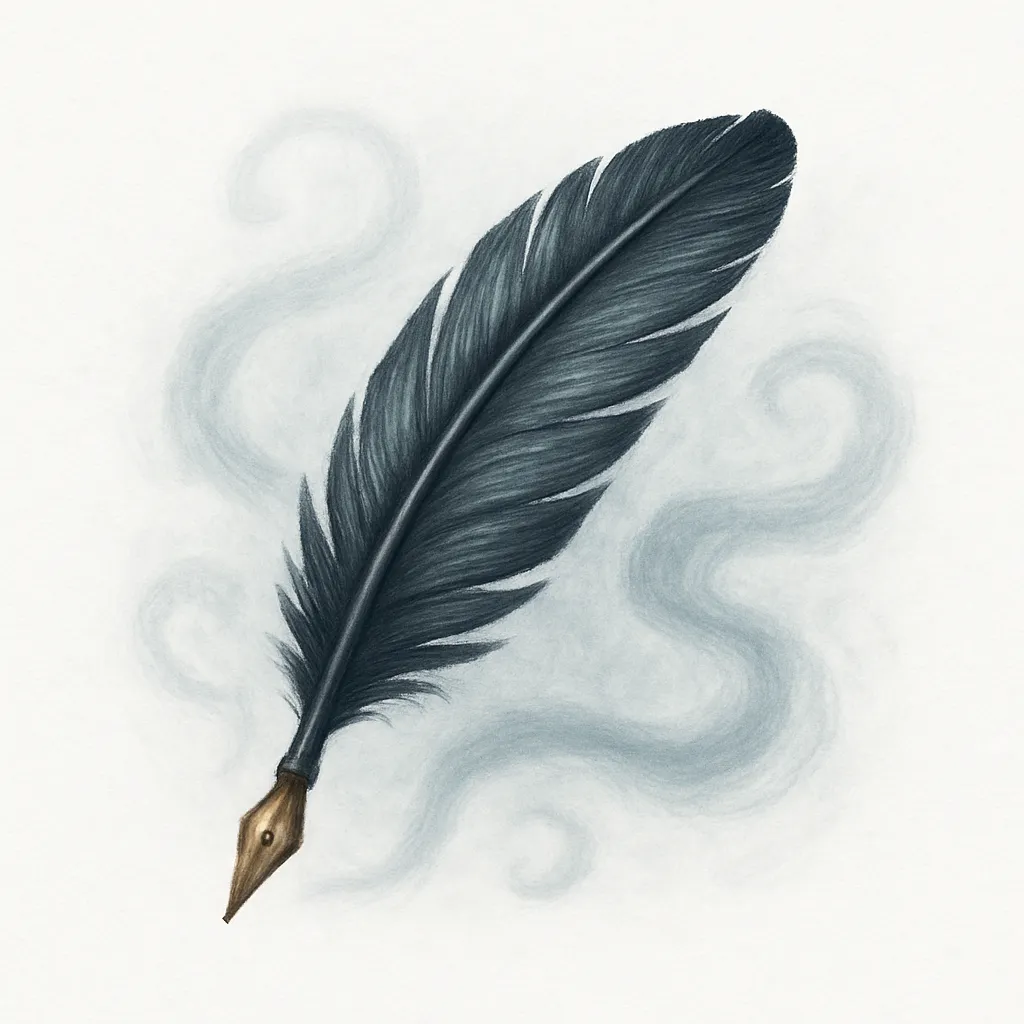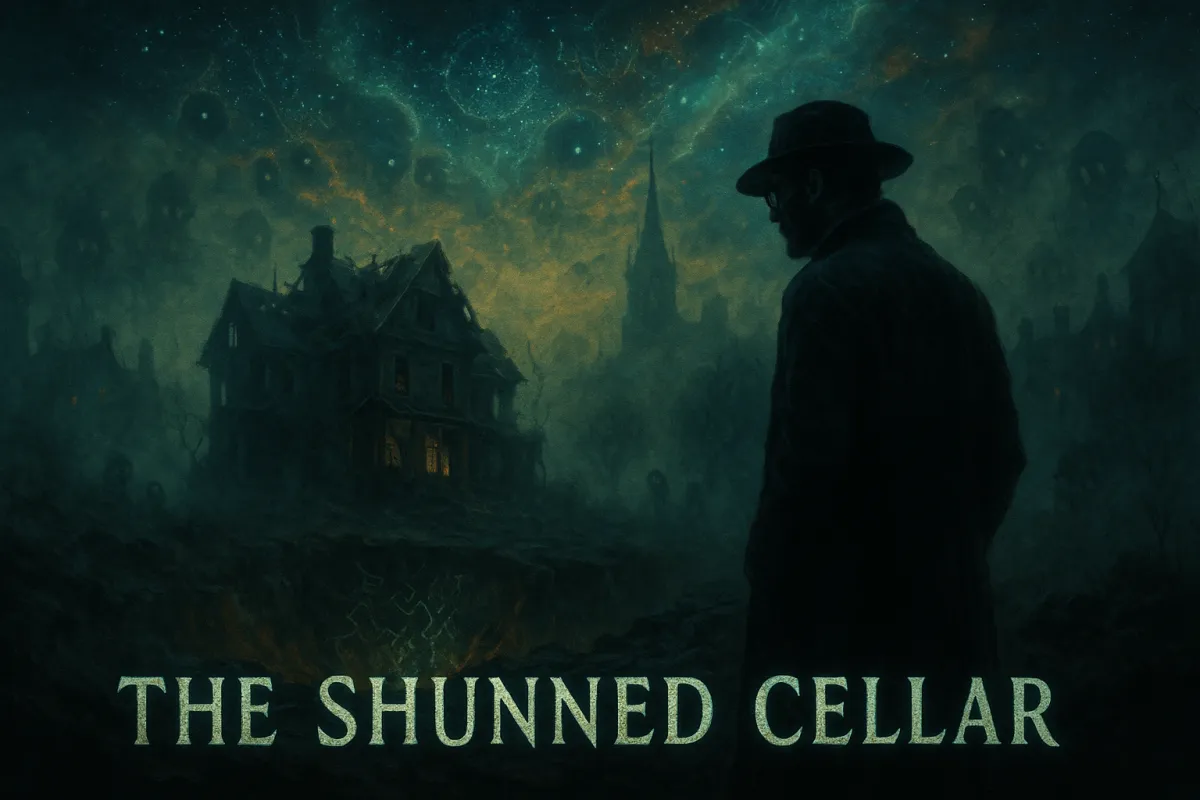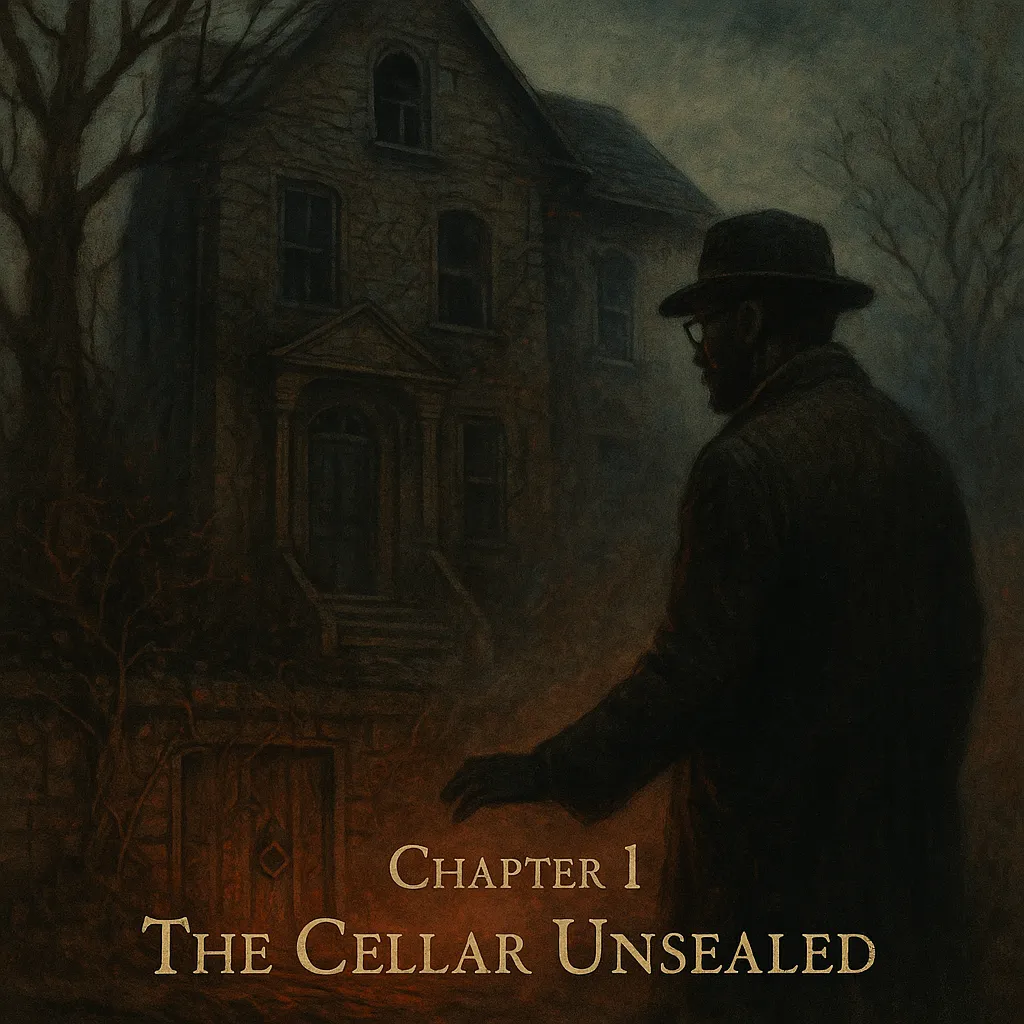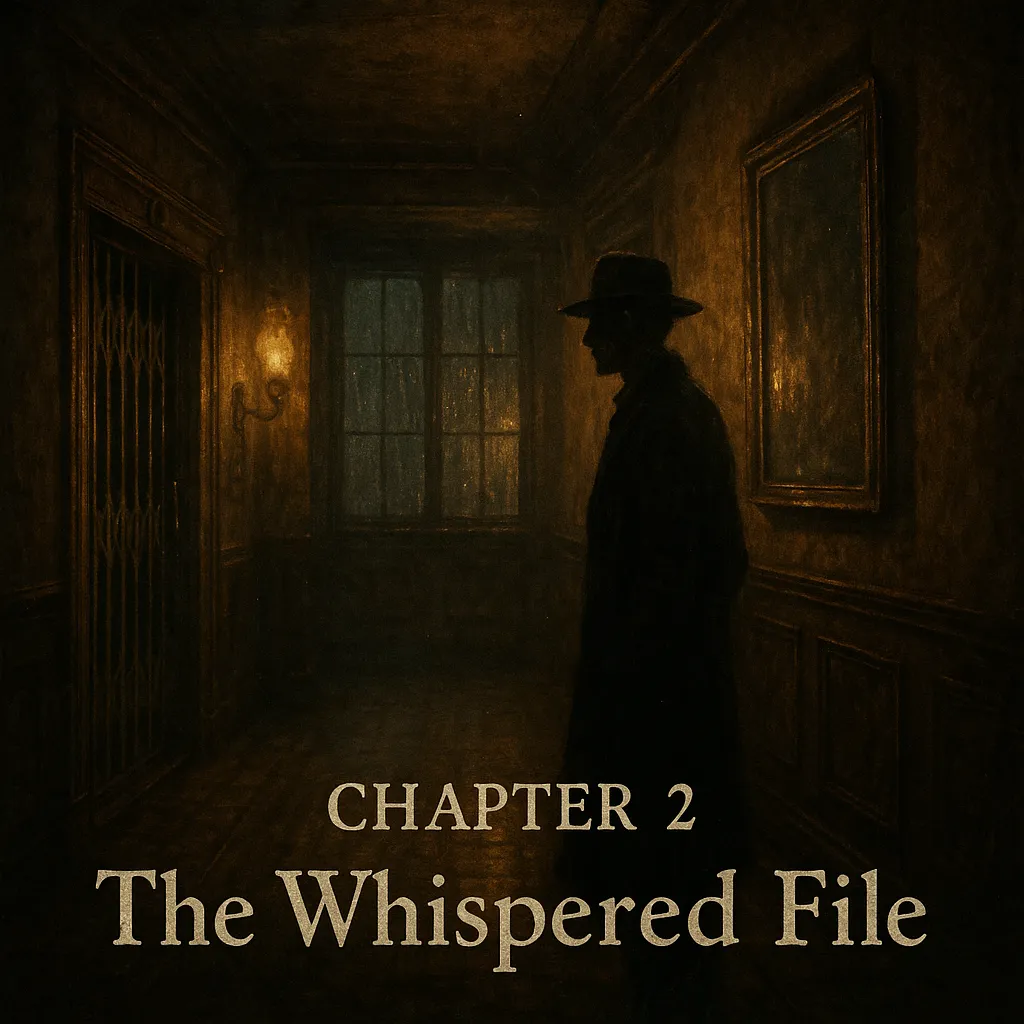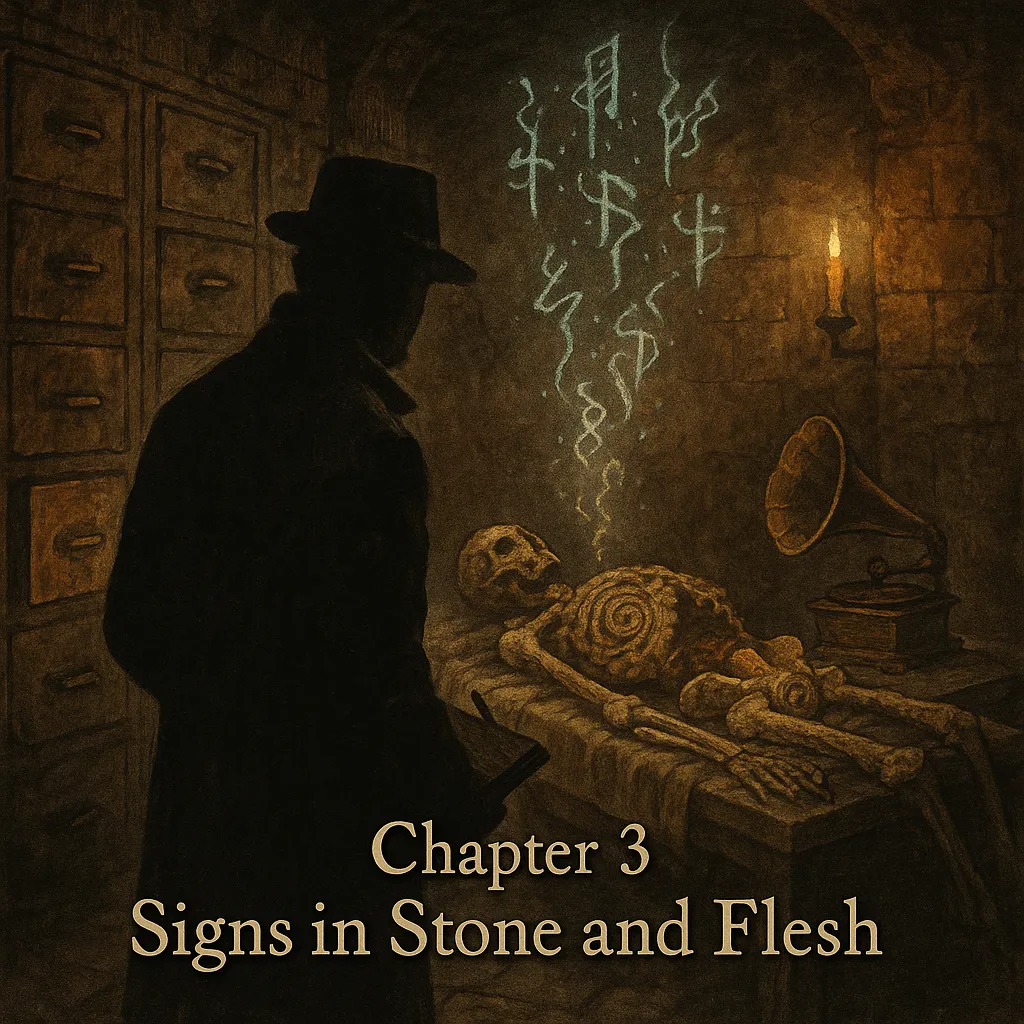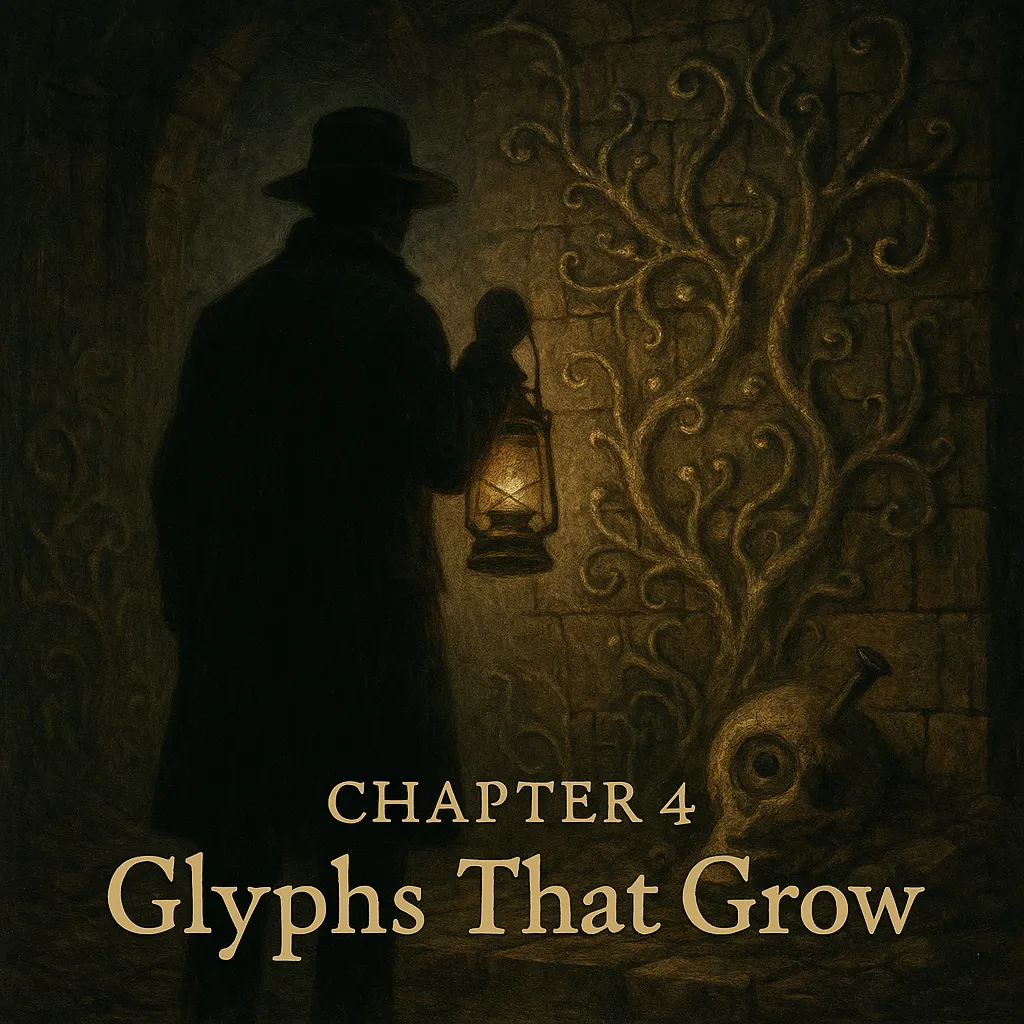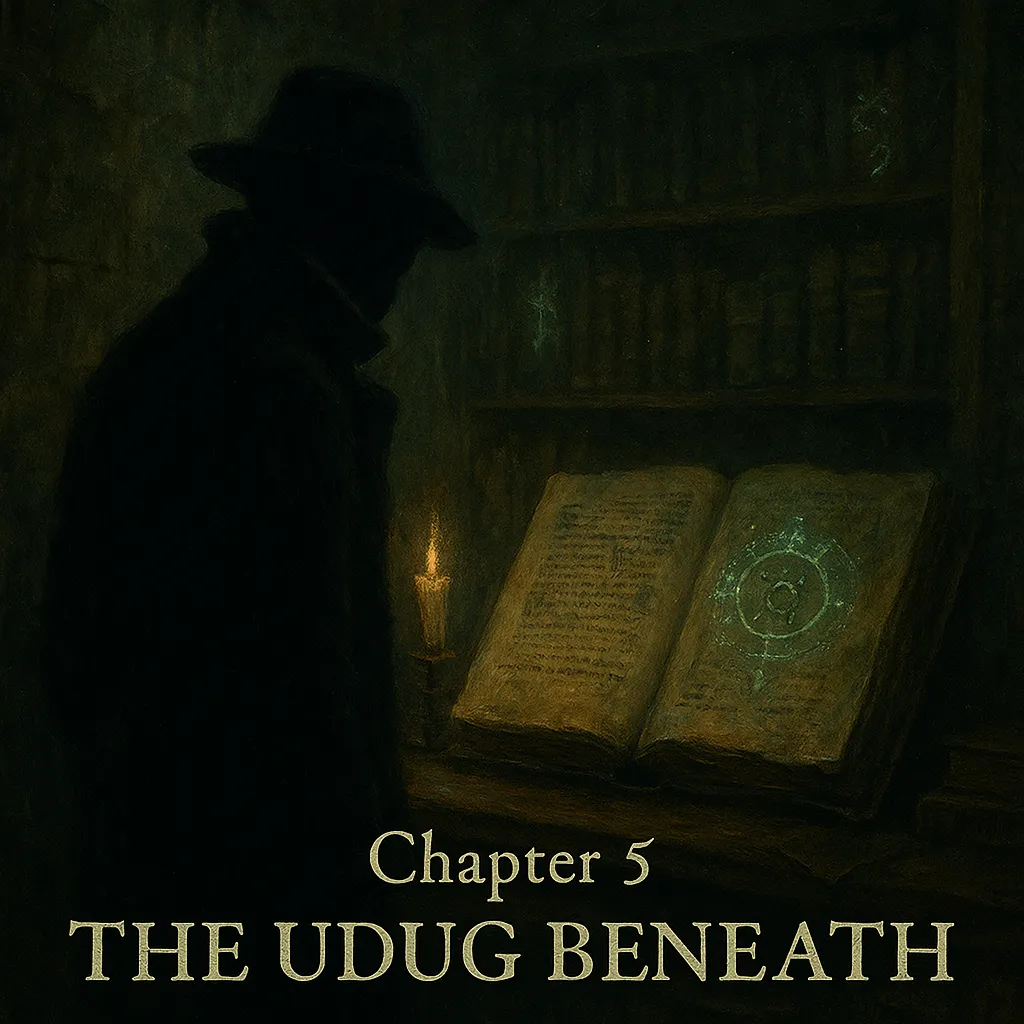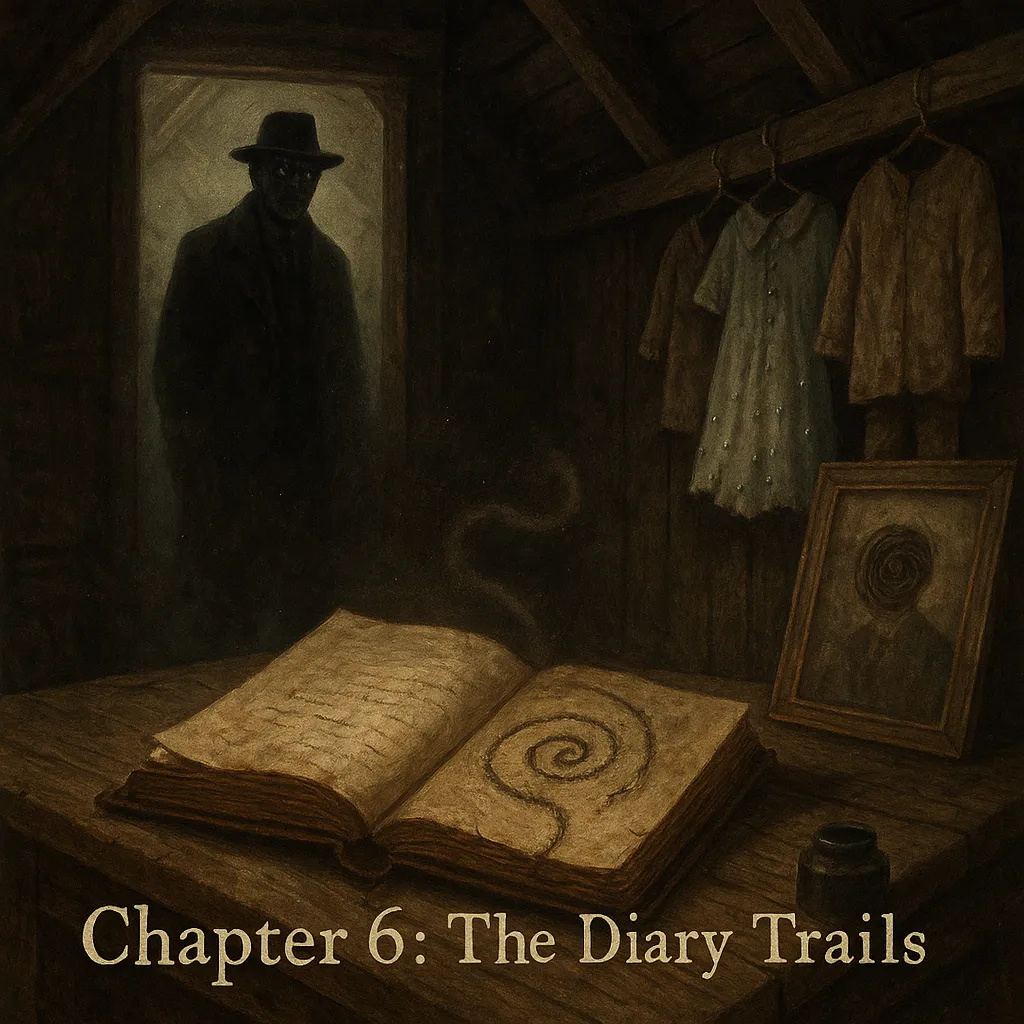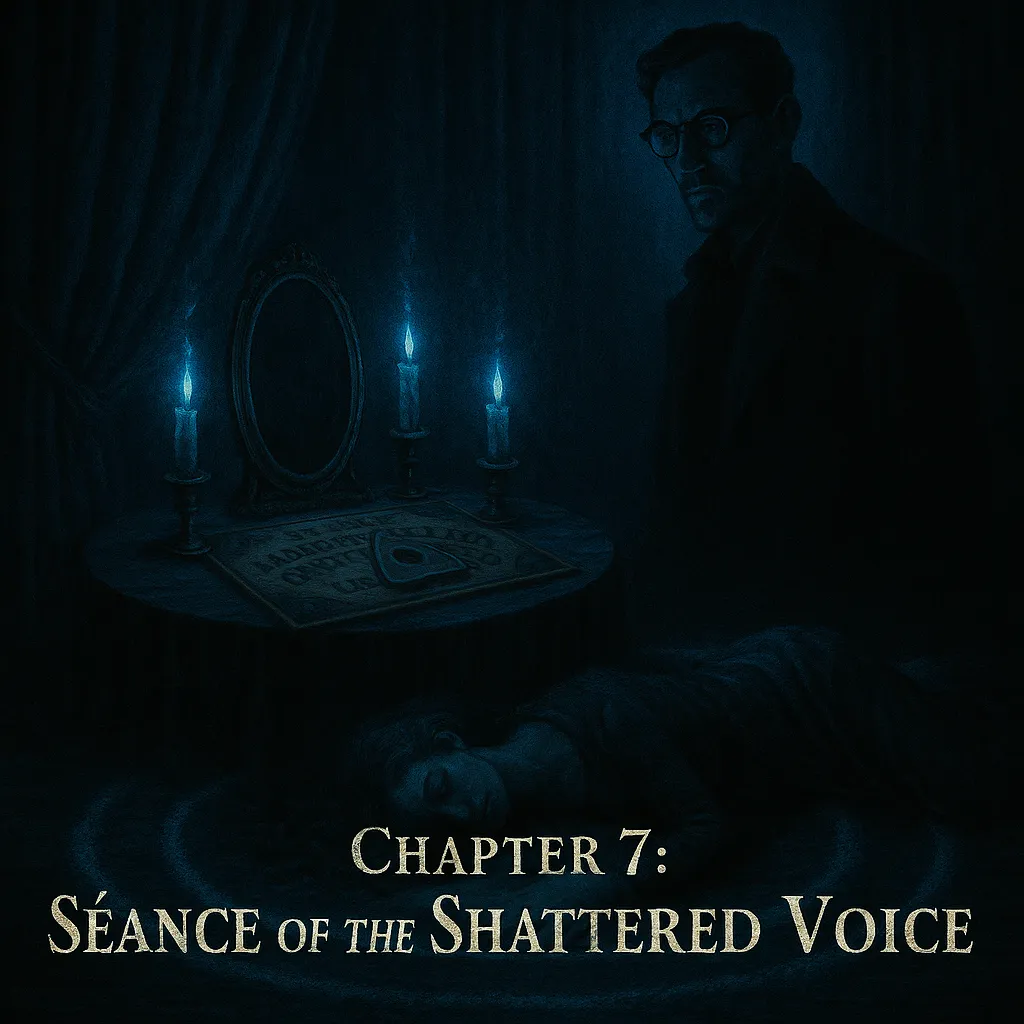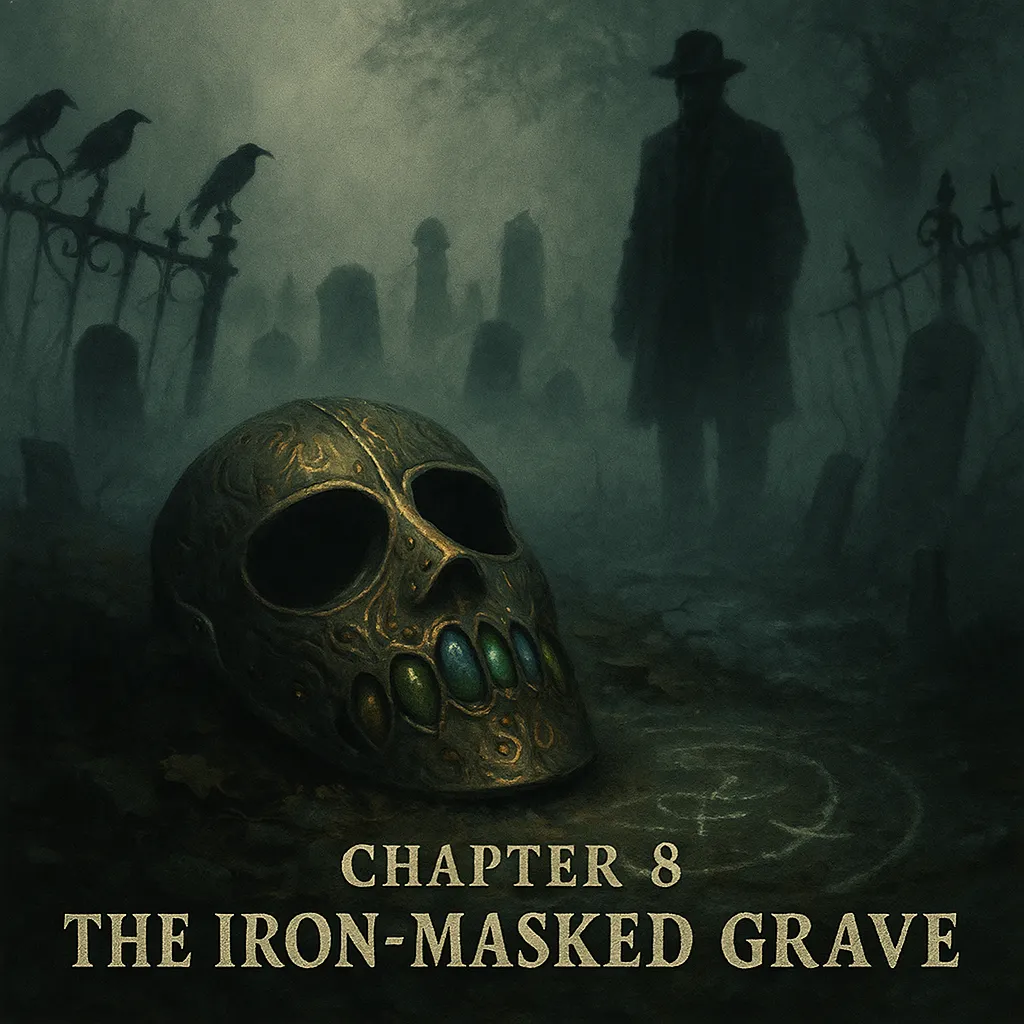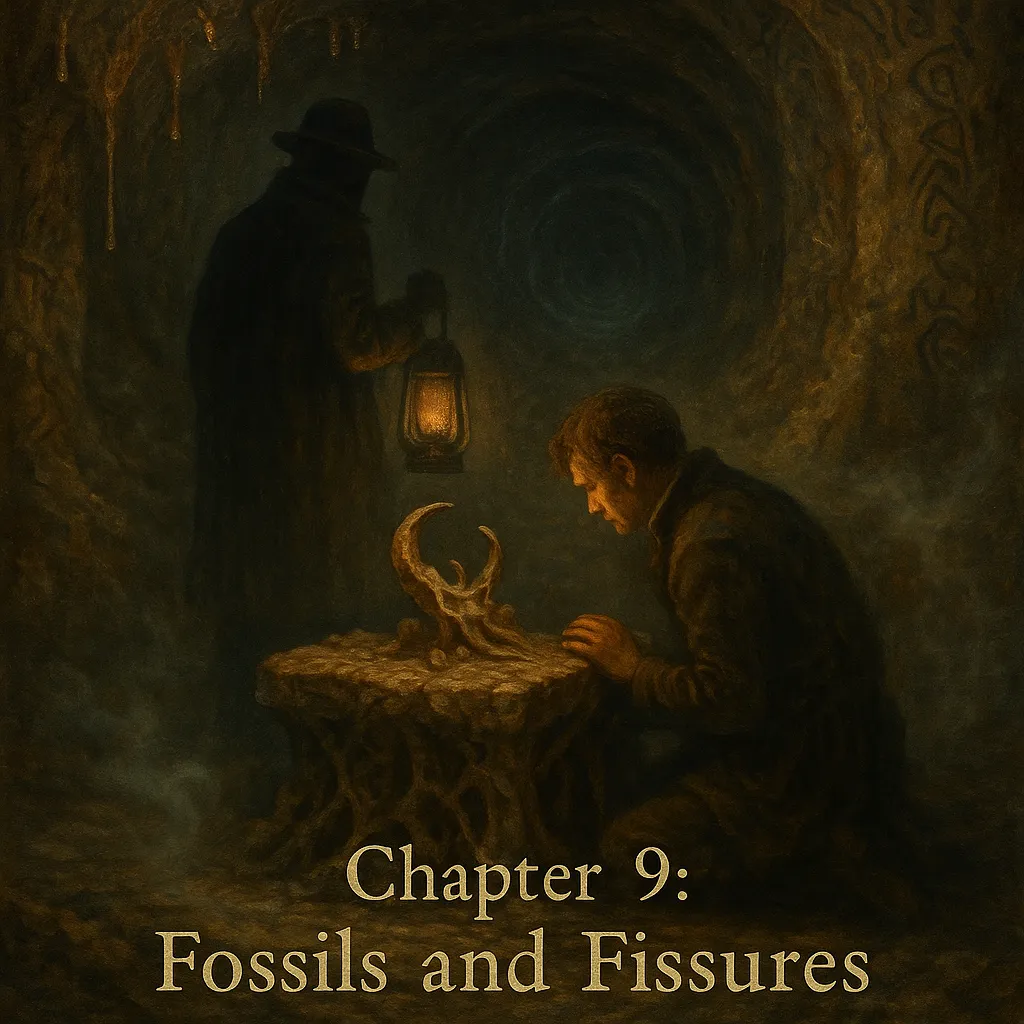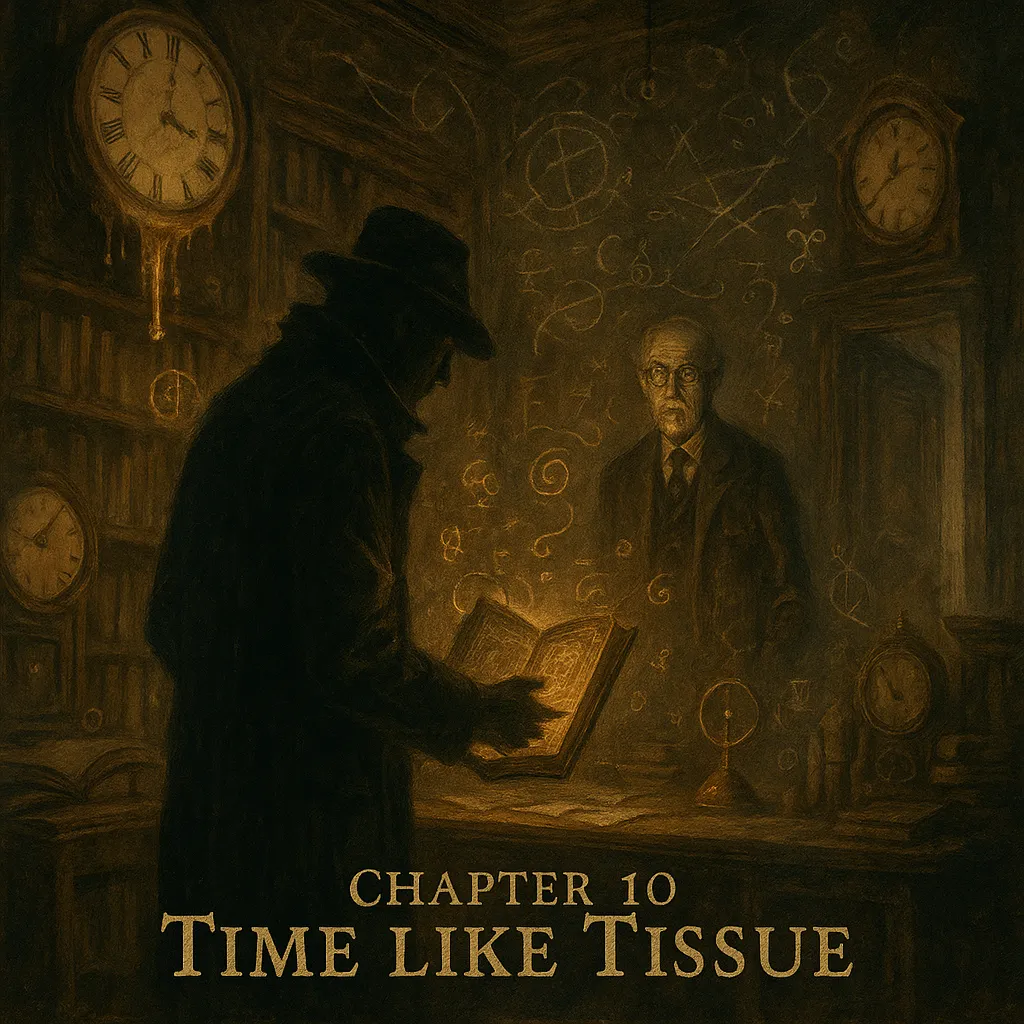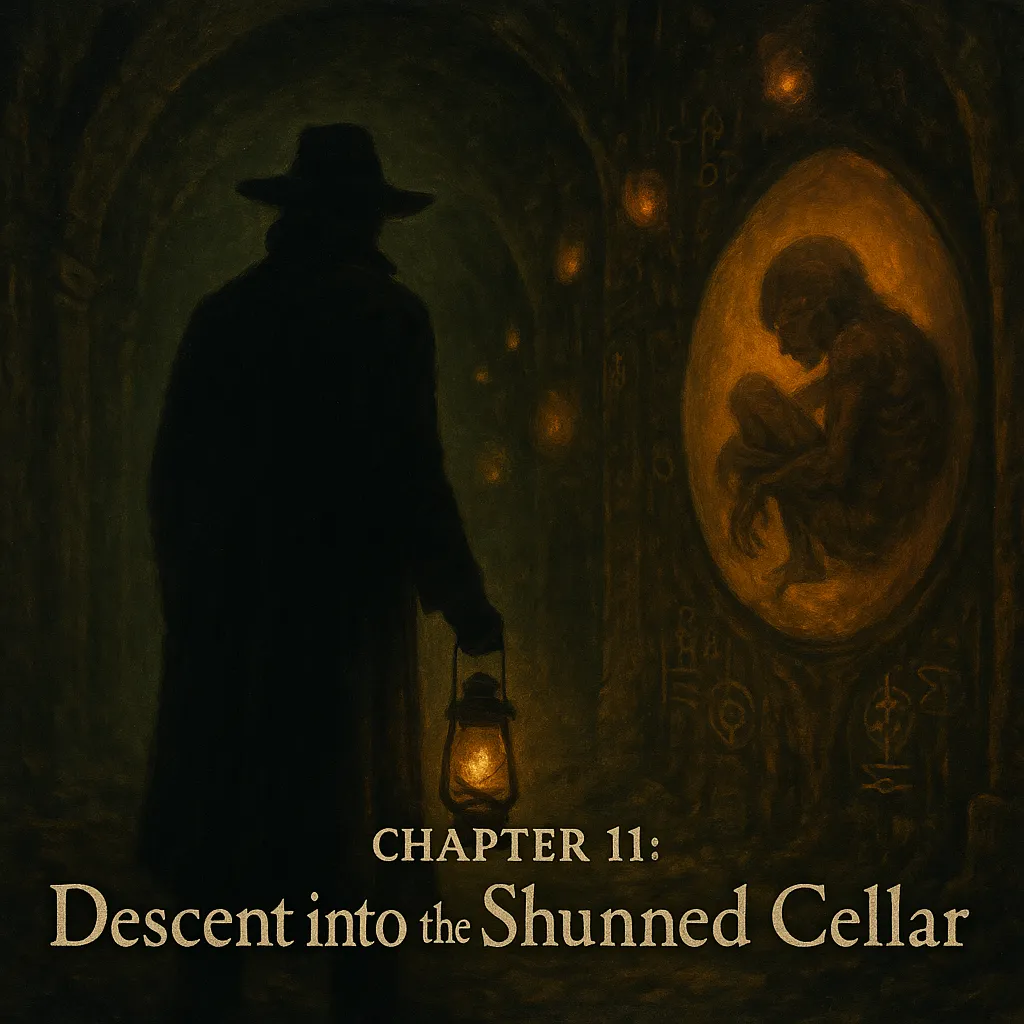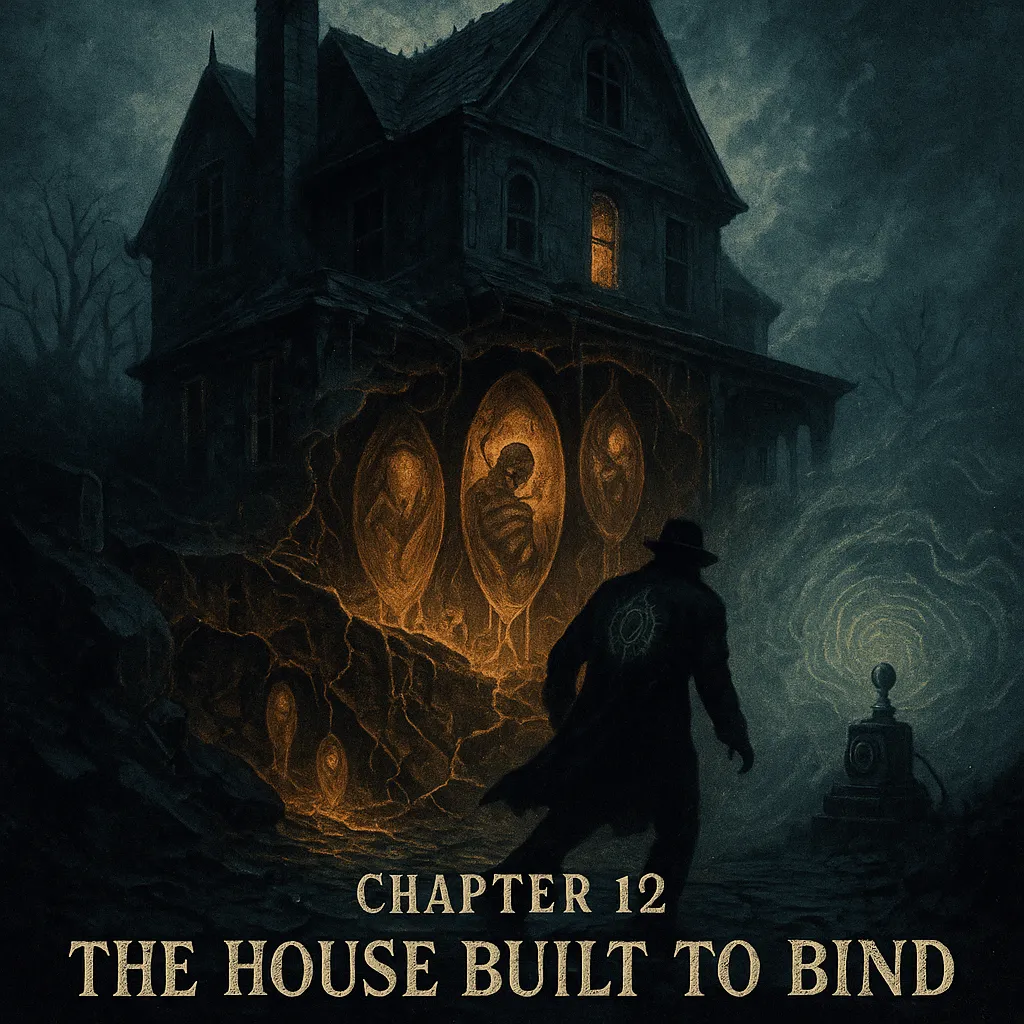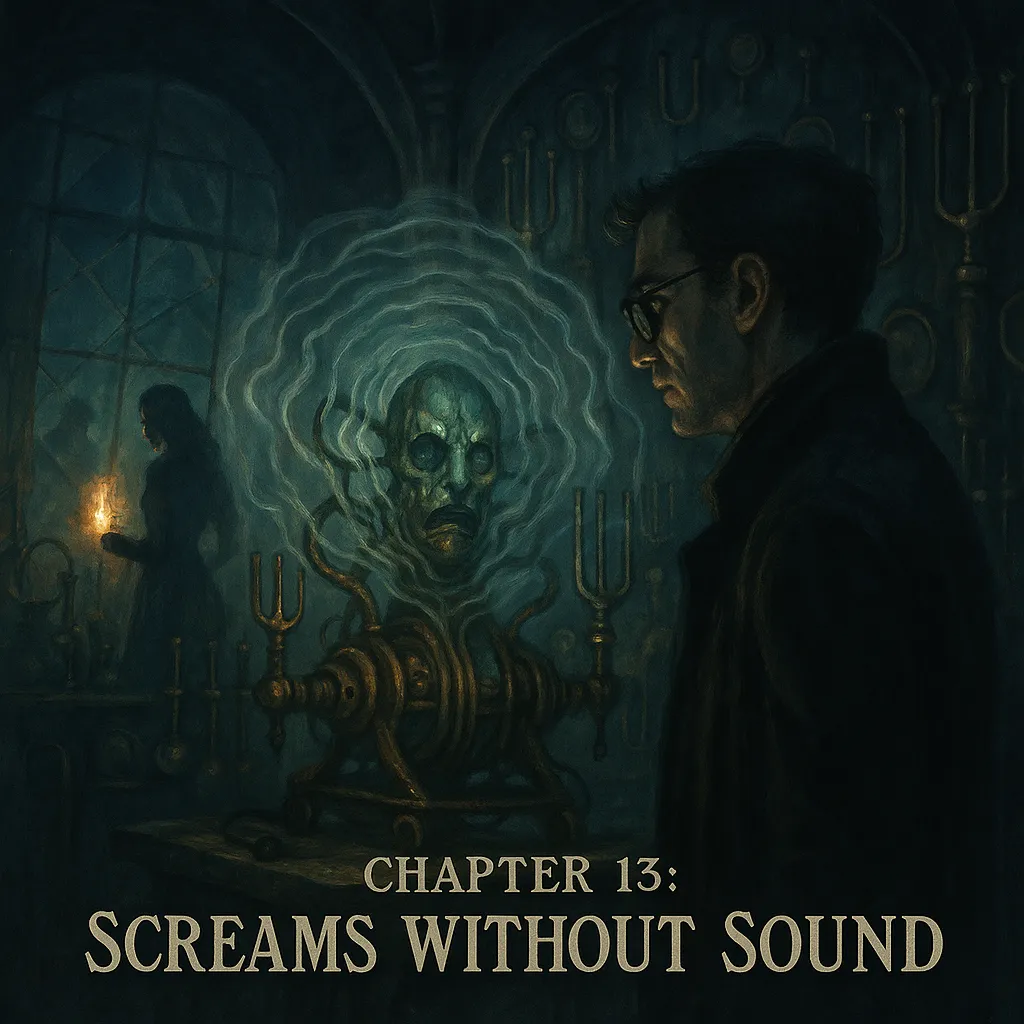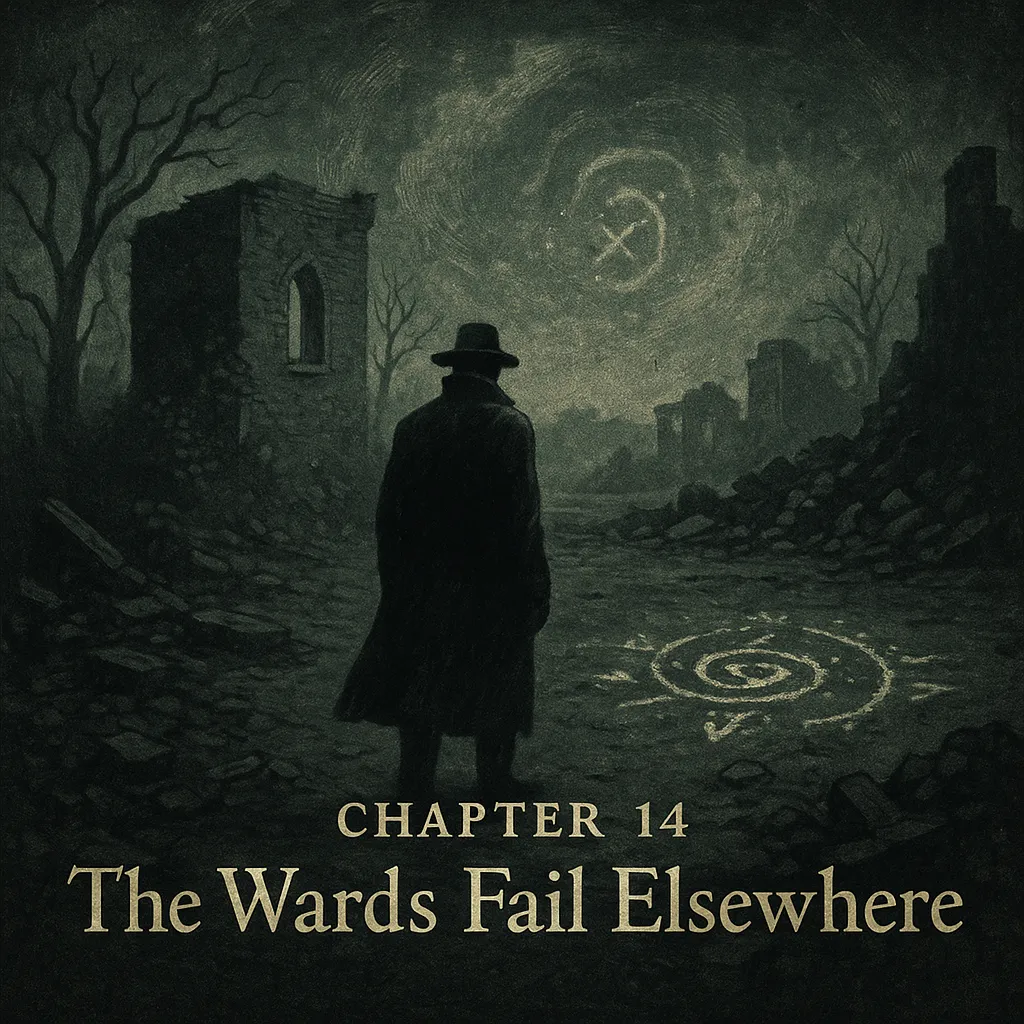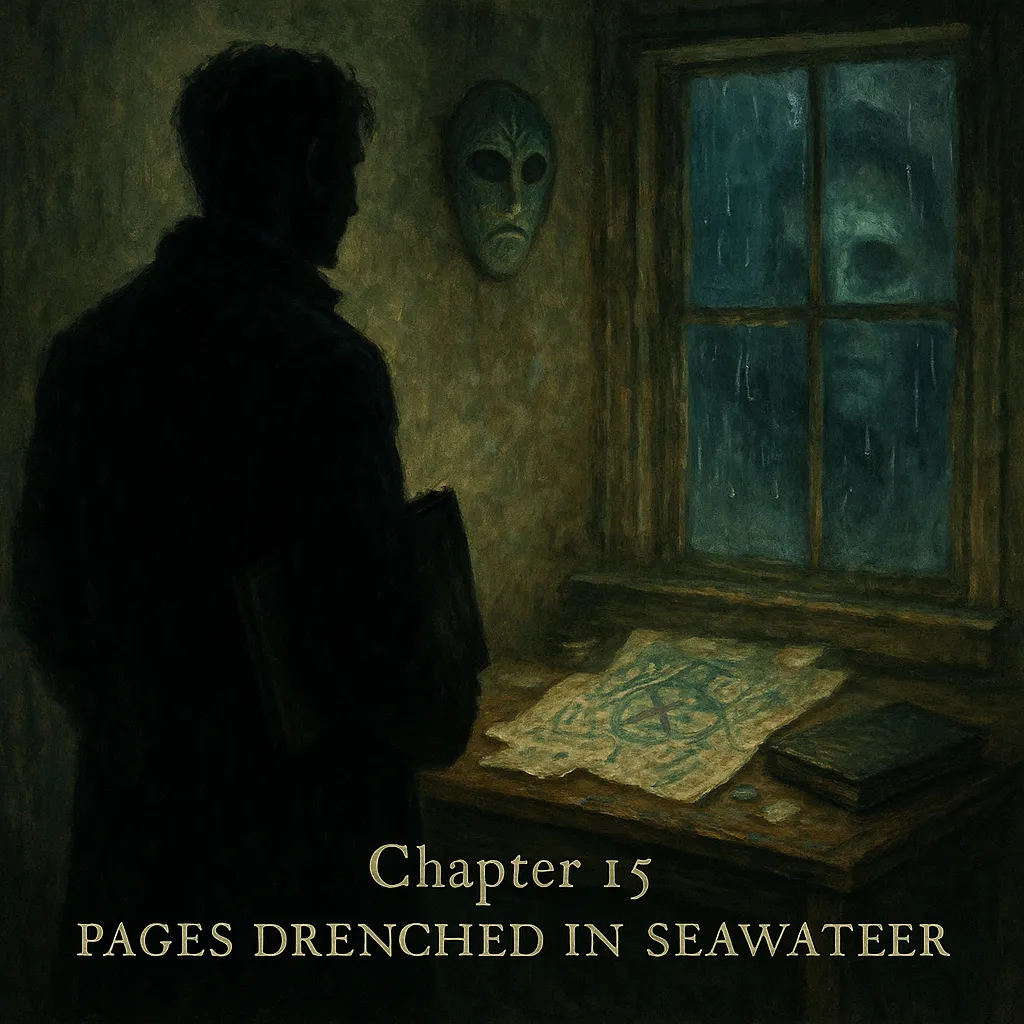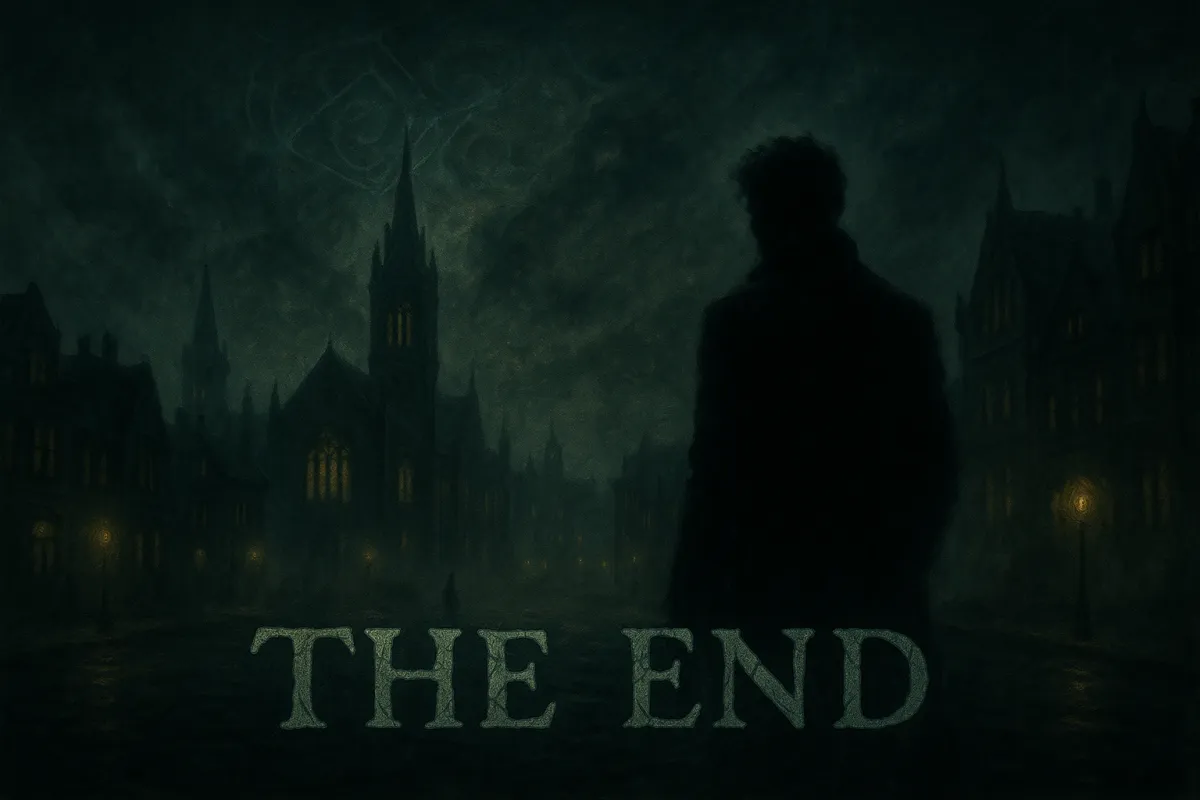The sky over Arkham sagged low, an ashen pall of cloud pressing upon the gabled roofs and chimney stacks like a smothering hand. The air was not merely cool but damp with a dread that seemed to leech upward from the earth. Along Whitcroft Street—a narrow, shadow-choked lane overlooked by moss-darkened eaves and widow’s walks long abandoned—stood the Mallory estate, a structure that wore its centuries not as adornment but as a wound poorly dressed.
Arthur Pendell hesitated before its warped iron gate, his fingers trembling not from cold but something deeper. His breath steamed in the autumn air, though he could feel the heat behind him—unnatural and sour, like the breath of an opened crypt. The house loomed with an indifference that bordered on hostility, its shutters all closed, its windows opaque with dust and time. Not even the crows that dogged Arkham’s spires landed upon its roof.
He adjusted his cravat with a hand that barely obeyed, drawing a shaking breath before crossing the threshold. The moment he stepped onto the walk, the fog behind him thickened like a curtain drawn closed.
Inside, the house reeked of fungal rot and rust, though no rain had fallen in a fortnight. The walls were paneled in dark walnut, faded to a dry, reddish hue like old blood. Floorboards groaned beneath his feet with a sound that might have been wood—or a voice just below the threshold of hearing.
He was not alone.
Three workmen—hired for appraisal and basic restoration—stood nervously near the parlor doorway, their tools limp in calloused hands. One, named Harlan, stared at the floor with wide, unfocused eyes. His lips moved without sound, and his fingernails were dark with blood where he had gouged his own forearms in a fit of unprovoked terror. Another, Collins, had vanished two nights prior, last seen descending toward the basement with a crowbar and a coil of rope. The third man simply refused to return after what had been found.
Pendell did not ask them to explain. He knew too well what fear did to language.
Instead, he descended the creaking central stair, past family portraits whose features had long since faded into anonymous smudges. At the base, a short hallway veered left, ending in a warped door slick with some dark varnish that had never dried. It was here, behind generations of cobweb and boarded plaster, that they had uncovered the bricked-over subcellar—an architectural impossibility not found on any ledger, plan, or deed.
He approached the sealed entrance, the air growing warmer with each step. Moisture beaded on his temples despite the chill outside. The heat was not radiant but ambient, oppressive. Alive.
The cellar door was of thick oak, blistered and blackened near the hinges. A circular iron ring served as its handle—rusted but strangely warm to the touch. Pendell hesitated, swallowed hard, and pulled.
Nothing moved.
Then, from the other side—three sharp knocks. Deliberate. Rhythmic.
Pendell staggered back, his vision swimming. A sudden vertigo overtook him, and for a moment, he saw the walls bend inward, impossibly, like the inside of a mouth exhaling. In the stone, for the briefest flicker, he glimpsed an outline—vast, coiled, and pulsating—beneath the floor.
He fled without grace, his footsteps echoing off the warped walls like the patter of a pursued man.
Later, in the frayed quiet of his lamplit study, Pendell penned the letter that would begin the unsealing not of a cellar, but of something buried far deeper.
To Mr. Nathaniel Crowe, West Pickman Street, Arkham—Urgent & Confidential.
Nathaniel Crowe read the letter twice.
Its ink was rushed but not illegible, each stroke trembling at the edge of legibility. Pendell had not hidden his fear, nor attempted to dress it in legalese. He had described the heat, the missing man, the senseless ramblings of the injured one—and the sense that the house itself watched. Crowe’s fingers hovered for a moment over the final lines:
There is something beneath, Mr. Crowe. I do not know what it is. But I cannot return alone. I believe something old is waking—and it does not wish to be seen.
Crowe folded the page and slid it into his journal, where a dozen other cases lay bound in cipher. He stood and moved to the window of his West Pickman Street office. The sky over Arkham had turned a sickly amber, the sunset filtered through coils of fog that rose not from the river, but from the city’s very foundations.
He turned toward his shelves—rows of cracked tomes, inked scrolls, and glass vials labeled in forgotten tongues. A low vibration seemed to hum beneath the floorboards as he withdrew a sealed envelope marked “Mallory, 1871 – Deferred Inquiry.”
The name struck him as half-remembered, like a dream half-erased by waking. He knew that name. Had heard it once before, whispered in connection with something old, something not spoken of at Miskatonic.
And yet he could find no record of the family beyond the lease records and the sealed deed filed decades prior. No obituaries. No census returns. Nothing but a name… and an address that hadn’t appeared on modern maps until the bricked cellar was broken open.
He packed his satchel with care, including his recorder, his warded compass, and the small brass cruciform lens given to him by a dying man who had once read geometry that bled.
Before departing, he lit a single candle on the windowsill—a warding rite older than even the city. The flame guttered briefly in a draft that came from nowhere.
Whitcroft Street was quiet, too quiet.
As Crowe approached on foot, the light grew redder, though no sun remained. A mist curled at ankle height, too thick and too warm for autumn. His breath failed to fog. The locals he passed gave him no greeting; they turned instead, crossing the street without eye contact, their faces pale and expressionless.
The Mallory estate loomed at the corner where the street bent into a cul-de-sac, shrouded by trees whose leaves had not fallen but shriveled in place, blackening like blighted fruit.
Pendell waited outside, coat tight against him, hands jammed in his pockets as if to hold himself together.
“You came,” he said. His voice was small. Almost grateful.
Crowe nodded. “I seldom ignore an invitation from the dead.”
Pendell swallowed. “They didn’t find Collins. Not even a shoe.”
Together, they crossed the threshold.
The interior was unchanged, and yet… different. The temperature seemed to pulse, as though the house exhaled only when unobserved. The wallpaper peeled not from age but from something beneath it pressing outward. Crowe ran a gloved finger along the balustrade—dust clung to it, dark and dry, smelling of crushed rose petals and burned hair.
They reached the cellar door in silence.
It no longer resisted.
As Crowe placed a hand on the rusted ring, the wood beneath his palm pulsed—once.
Like a heartbeat.
He said nothing. Only opened the door.
The air within was rancid with age and damp heat, but not still. It churned faintly, like breath drawn through a hundred unseen throats. The stone steps descended into darkness that did not invite intrusion. Only the edges of the torchlight penetrated, revealing walls of fitted stone—too regular for colonial masonry, too warped to be Euclidean.
Crowe lit a second lantern and passed it to Pendell, who took it with a twitch of hesitation.
“Stay behind me. Do not speak unless necessary. And if you feel cold, say so immediately.”
Pendell nodded.
They descended.
Halfway down, Crowe paused. The walls were… wet. But not with water. A film, almost gelatinous, shimmered over the stone. Glyphs—faint, like bruises—floated just beneath the surface, moving subtly as if trying not to be seen.
And then he heard it.
A whisper.
Not in his ears, but in the marrow of his bones. A word he could not translate, but knew. It curved inward, folding thought into sensation.
The voice said his name.
Not aloud. Not spoken.
But remembered.
